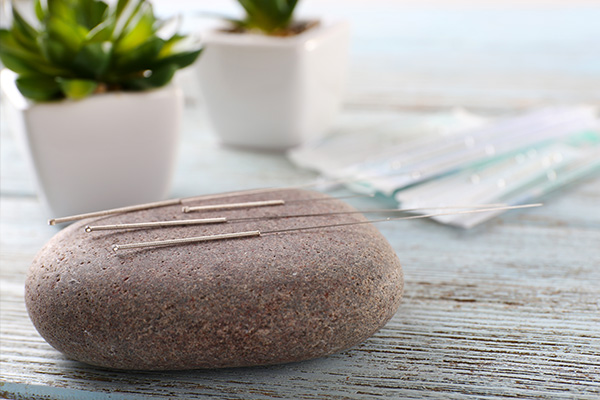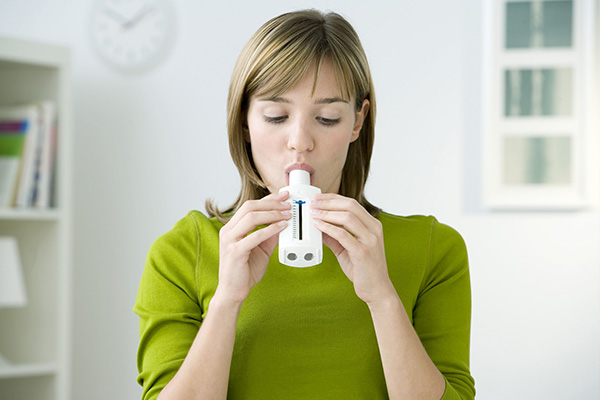In this article:
Chronic obstructive pulmonary disease (COPD) refers to a group of lung problems, including chronic bronchitis and emphysema, that causes breathing problems.

COPD affects around 16 million Americans and is a leading cause of death. However, this disease is often preventable and can be managed long term with diet modifications, lifestyle changes, and medications.
Lifestyle Changes for COPD
Here are some steps that people with COPD can do to help manage their condition:
1. Stop smoking
Smoking cessation is the first step toward COPD management. Moreover, prevent exposure to smoke and other environmental/occupational triggers as much as possible to prevent the disease from getting worse.
2. Take medicines
Use your long-acting inhalers and medications regularly as doing so prevents acute exacerbations and worsening of lung function.
3. Exercise daily

Make exercise a regular part of your everyday activities.
- Aerobic exercises, which include walking, biking, and water aerobics, help keep the muscles of breathing and of the chest active in order to be able to compensate for the poor lung function.
- Pulmonary rehabilitation is a 6–8-week program that most patients with COPD should undergo.
- Breathing exercises, such as pursed-lip breathing, may also help with the symptoms.
- Exercises to help strengthen the diaphragm (the main muscle of breathing) are also important.
4. Modify your diet
Eat low-carbohydrate, high-fiber, and high-protein meals to help strengthen the muscles of breathing and reduce the amount of CO2 produced by the body.
Increase your intake of foods rich in vitamin C and E, such as guava, lemon, broccoli, kiwi, and nuts, as these vitamins can also help improve lung function. (1) Moreover, consume foods rich in N-acetyl cysteine, such as turkey, chicken, yogurt, and cheese, to lower the risk of flare-ups.
If you are obese, consume foods that may help reduce fat and weight to help lessen the load of the muscles of respiration. If you are very thin, consume foods to help gain weight to strengthen the muscles of breathing.
If you have diabetes, take steps to control your blood sugar to help reduce muscle weakness and muscle breakdown.
5. Increase fluid intake

Drink plenty of fluids to keep the body properly hydrated and to help water down the mucus, making it easier to expel.
6. Take supplements
Prolonged use of oral steroids for controlling the inflammation associated with COPD can have side effects, such as muscle breakdown and osteoporosis. Therefore, it is important for such patients to take calcium and vitamin D supplements continuously as they help prevent bone breakdown.
7. Manage your mental health
Decrease stress and anxiety by practicing relaxation techniques to prevent flare-ups. You may also consult a counselor for the same.
8. Check before traveling
If you plan to travel to a place with a high altitude, seek medical attention to determine if flying and going to such a location is safe and whether you need extra oxygen or not.
9. Try rehabilitation programs
Participate in support groups and pulmonary rehabilitation programs to increase your understanding of the disease and promote compliance with therapy.
Complementary Therapies
Complementary therapies refer to non-standard ways of treatment, which, when used with medical treatment, can help better disease management. These therapies should be performed by experts only.
1. Try acupuncture

Acupuncture involves the insertion of needles at specific points in the body to help alleviate symptoms. It can help improve breathing in COPD patients. (2)(3)
2. Perform Tai chi and Gigong
Tai chi and qigong are traditional Chinese exercises that make use of meditation, breathing exercises, and movement to promote lung function, increase lung capacity, and improve quality of life. However, further studies are required to warrant their effects. (4)(5)
Prevention of COPD
The most important thing with COPD is to quit smoking or to prevent secondhand smoke exposure. Most people develop COPD as a result of cigarette smoking.
Thus, giving up this nasty habit and avoiding exposure to secondhand smoke are the first steps toward reducing the risk of developing COPD. Avoidance of environmental fumes can also significantly reduce the risk of developing COPD.
Those with friends and family who smoke at home should also try to avoid the smoke or request the smoking individual to smoke outside.
Most-Asked Questions About COPD

Why does COPD worsen at night?
Many patients with COPD also suffer from sleep-disordered breathing, which may make the symptoms of COPD worse at night. Also, at night, when one tries to relax and sleep, one is more cognizant of one’s breathing and, therefore, may notice the irregular breathing more.
Is COPD a contagious disease?
COPD is not a contagious disease. In patients with genetic mutations such as alpha-1 antitrypsin deficiency, the disease may be passed on from one family member to the next – not because the disease is contagious.
What role do endobronchial valves play in COPD treatment?
Endobronchial valves are used for lung volume reduction surgery to help with COPD symptoms.
The idea is that the valves are placed in the lobe of the lung that is more diseased to cause a complete collapse of that lobe and to allow for the other better lobes to take over and function more efficiently. The procedure is minimally invasive.
Is COPD a fatal disease?
Yes. COPD causes significant airflow obstruction and can be fatal in severe cases. COPD accounts for nearly 140,000 deaths in the United States annually, with 1 American dying of this disease every 4 minutes. (6)
Is cineole beneficial for COPD?
It has been observed that cineole, an active compound in eucalyptus oil, can help manage COPD symptoms such as dyspnea and winter exacerbations. Moreover, it helps improve lung function and overall health status. (7)(8)(9)
You may consume it as an oral supplement or use it for aromatherapy upon discussing it with your doctor.
Is ginseng (Panax ginseng) beneficial for acute to severe COPD?
Ginseng is an ancient Chinese herb that can help manage the symptoms of COPD. However, the results of the studies conducted on its efficacy are inconclusive. (10)(11)
Final Word
COPD is a group of lung problems that cause breathing difficulties. Since it is generally caused by lung damage due to smoking, it is essential to quit smoking or avoid secondhand smoke.
Moreover, early diagnosis and treatment, coupled with lifestyle changes, dietary modifications, and self-care measures, can help manage the disease and prevent progression.

- Was this article helpful?
- YES, THANKS!NOT REALLY


